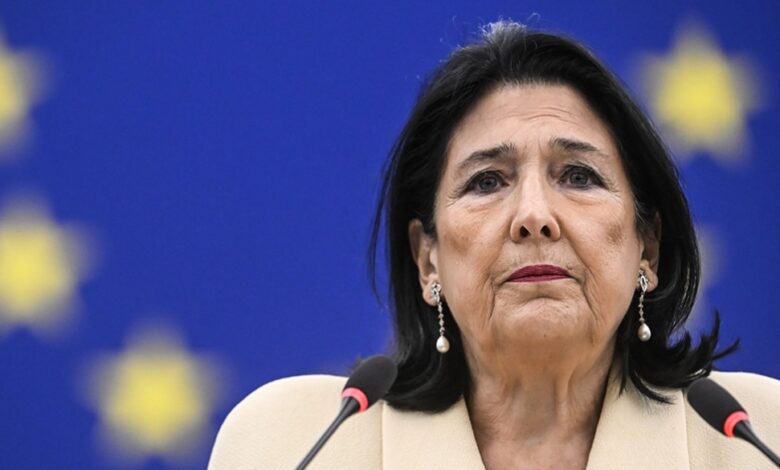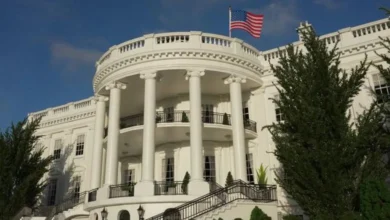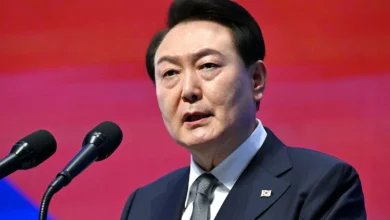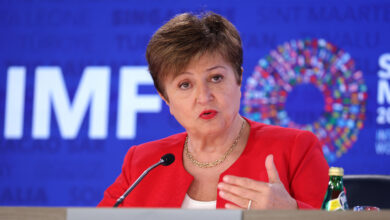Georgia in Turmoil: Outgoing President Defies Successor Amid Protests Over EU Hopes
Political unrest grips Tbilisi as protesters demand democracy, European integration, and an end to authoritarian governance

- Outgoing President Zourabichvili declares herself the “only legitimate president,” rejecting her successor’s inauguration
- Protests erupt nationwide over delayed EU accession talks and allegations of election fraud
- Ruling Georgian Dream party faces criticism for authoritarian policies and closer ties to Russia
As Mikheil Kavelashvili, a former footballer and ally of the ruling Georgian Dream party, was sworn in as Georgia’s new president in a closed-door parliamentary ceremony, the nation witnessed escalating political tensions.
Thousands of protesters flooded Tbilisi, voicing outrage over allegations of electoral fraud and the government’s controversial decision to delay European Union accession talks until 2028.
Outgoing President Salome Zourabichvili, who has criticized the Georgian Dream’s increasingly authoritarian policies, refused to step down, declaring herself the “only legitimate president.” Addressing the crowds outside the presidential palace, she labeled her successor’s election a sham and left the palace with defiance, stating, “This building was a symbol only as long as a legitimate president was sitting here.”
The inauguration unfolded against the backdrop of widespread protests. Demonstrators, waving Georgian and EU flags, formed a massive human chain and clashed with riot police, symbolizing the nation’s growing frustration with the government’s shift away from Western alliances.
Kavelashvili, in his inaugural address, praised Georgian traditions and values, emphasizing peace as a national aspiration. However, his ties to the ruling party, which has faced criticism for passing restrictive laws and avoiding sanctions on Russia, have alienated much of the opposition and the public.
The crisis highlights Georgia’s precarious position between Western aspirations and Russian influence, as citizens demand a government that aligns with their pro-EU ambitions.





